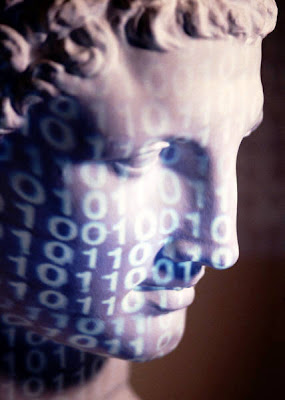January 20th 2008-2009: One Year Left in Bush's Presidency.

As I'm writing this, one year from this moment, there will be a new president in the White House. I've been running the Bush countdown clock (on the sidebar) for a long time, but I finally sense the end of this disastrous presidency is near--not soon enough though. I can't wait for November 4th... Obviously, I have preferences over the current field of candidates, but, I'll repeat, any Dem is way much preferable to any Repub at this point.
I've been watching the contests for the nomination. It's exciting and gives me hope for the future. The Republicans are confused and looking for an identity while most of their choices leaves them with much to be desired. Back in the early summer, I thought that the Democratic race would be between Hillary Clinton and the "anti-Hillary." For a while it seemed that there would be a 3-way race and that Edwards's populist appeal would be the counterbalance to the "establishment" candidacy of Mrs. Clinton. The grass-roots, progressives, the blogosphere and party activists had considered Edwards as the best one [absent Gore] to head the Democratic ticket in November. 
Obama managed to capture the imagination and the momentum instead and be the only one able to challenge Mrs. Clinton's inevitability as the party's flag bearer. It seems more so now with the deflation of John Edwards--whose South Carolina is his last chance to survive as a player (not a serious contender though)--and his supporters moving over to Obama, as it was shown in the Nevada caucuses.
By the way, what the hell is going on with the caucus system? It's not very democratic; it's rather inefficient, and unnecessarily complicated. In addition to changing the order states hold their contests and the front-loading, the caucus system has to go too. It can be replaced by a primary. If states want to maintain some of the characteristics of a caucus, the voters can be given a ballot whereas they can indicate on their ballots, choice 1, choice 2, and choice 3, etc.
As for the runors that Mike Bloomberg (the billionaire mayor of NYC) could run as independent, I think this guy is looking but won't make a decision until the two parties have their nominees. The Dems will have a strong ticket and the winds of change. It'll depend on the Repubs. If they nominate someone who won't have a freakin chance, Bloomberg may run. I don't think he's got any chance. Third-party/independent candidates have had absolutely no chance in presidential politics. Even Teddy Roosevelt (a national figure and a past president) couldn't get elected as an independent in 1912. *
I still think there's lots of progressive reforms needed in the way we recruit, select, and eventually elect the president of the US. The caucus system is not very democratic system and should be replaced with an open primary, that's held from morning to evening. By the way, the primary is paid by the state whereas the caucus is paid by the party. Maybe this explains the arcane rules and the limited access to the ballot box (or device that records the votes).
*T. Roosevelt served as US president, 1901-1909. He ran as a progressive against the Republican incumbent president, W.H. Taft, and won most of the primaries where states had open contests. Most of the states (then and in the past) selected their nominees through state conventions where party bosses dominated. The open primaries was the result of the progressive movement at the beginning of the century and Roosevelt's efforts opened up the party nominations to the membership, gradually breaking up the political bosses' control. Yet, those bosses had control of the party and gave the nomination to Taft. Roosevelt took his delegates from the Republican convention and formed his own party. Taft was the first sitting president to come in third in a three way race, behind T.R. Democrat Woodrow Wilson won that election with 42% of the national vote in 1912.















